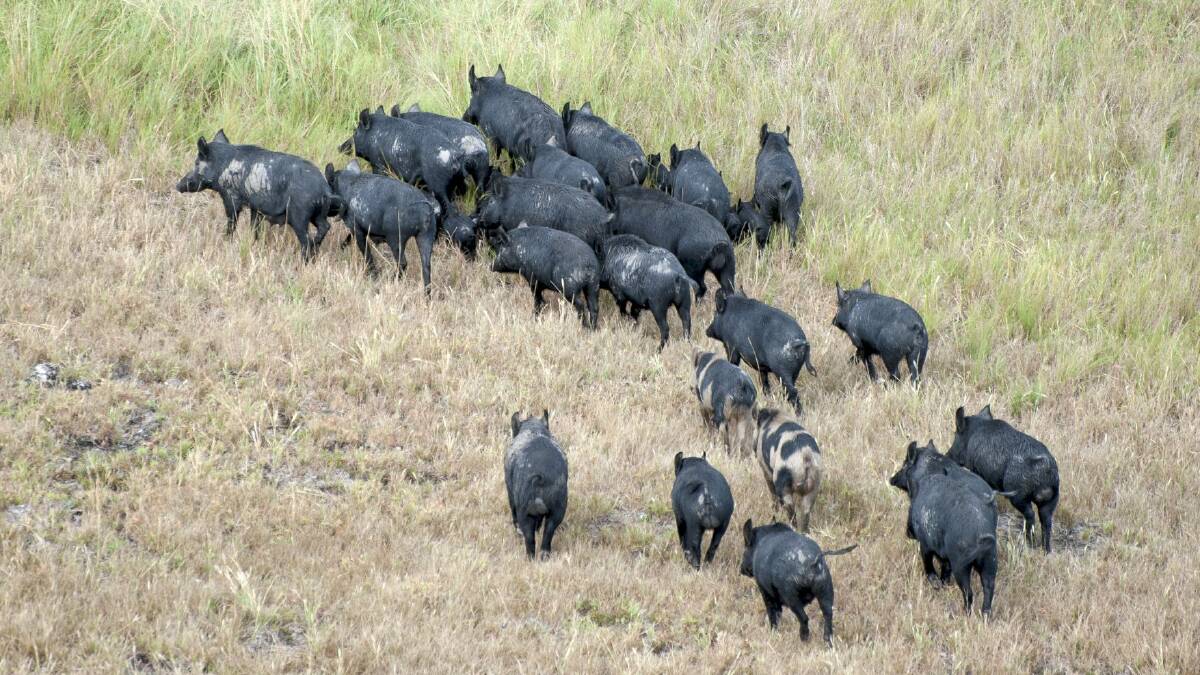
The NSW Labor party's resounding win in yesterday's election could be good news for farmers with strong early commitments to better biosecurity management, but there is widespread belief better agency staffing is required to make a real impact.
Subscribe now for unlimited access to all our agricultural news
across the nation
or signup to continue reading
Some of the new government's pre-election commitments included 100 new National Parks pest and weed officers, an independent biosecurity commission, a Natural Resources Commission audit of invasive species and $10 million for a program to tackle weed and pest infestations on government land neighbouring private property.
Labor has also committed to reduce feral horse numbers in Kosciuszko National Park, ensuring there are the resources needed to deliver the management plan as well as considering repealing the feral horse protection legislation.
While these are all seen as positive measures in the fight against feral animals and weeds, Invasive Species Council advocacy manager Jack Gough believes more needs to be done.
"The 100 new National Parks pest and weed officers is a positive step and Labor said before the election it would look further at frontline staffing in other agencies as well," he said.
"They understand the pressures on agencies like the NSW Department of Primary Industries and Local Land Services and said they would review staffing once they get a look at the books.
"We have said to them there needs to be statewide coordinator roles for both feral pigs and feral deer.
"Ferals don't respect property boundaries so there is no point controlling them on one property if they are breeding up on the next.
Ferals don't respect property boundaries so there is no point controlling them on one property if they are breeding up on the next.
- Jack Gough, Invasive Species Council advocacy manager
"We have also said there needs to be 10 new pest and weed officers for every LLS area.
"That equates to 110 new roles across the board to complement the coordinator.
"We believe these roles and the statewide coordinator will allow for a significant increase in pest management capabilities."
ALSO READ:
Mr Gough said the creation of an independent biosecurity commission is another positive step.
"An independent biosecurity commission will be good because biosecurity needs a broader focus," he said.
"Having a commission independent from government agencies will allow a broader focus on environmental issues as well as industry priorities."
Labor committed to a Natural Resources Commission audit of invasive species within it's first 12 months of government.
The last audit was completed in 2014 and Mr Gough said he would like to see some changes from the way it was conducted.
"To have the best impact on invasive species control, we pushing hard for the audit to actually be split into three audits," he said.
"We need one on weeds, one on hard-hooved feral herbivores and one on cats.
"They are so different that they need specific solutions to best manage them."
Relationship management is key
North Star grower and NSW Farmers member Peter Mailler believes Labor's election win is an opportunity for his organisation to work with government to achieve the best biosecurity outcomes.
He believes how that relationship is managed will determine how effective the outcomes will be.
"Labor and The Greens look likely to have the majority in both houses and historically we have been on different sides," he said.
"There has to be some olive branches extended as we need The Greens onside for some of these issues.
"Farming organisations have been loud and parochial for a long time and that may need to change.
"We have got at least the next four years with this new government and we need to make it work.
"We need to look at the grassroots level and manage the relationship."
Mr Mailler has first-hand experience with biosecurity problems, having seen feral pigs run across his front lawn.
He said that biosecurity was not just an issue for farmers.
"Ultimately how we manage biosecurity and invasive species needs to be resourced properly," he said.
"Biosecurity needs to be a coordinated approach as it does not stop at the farm gate.
"Crown lands need to be held to the same standard that farmers are.
"Resources need to be directed in the right areas.
"Challenges like Varroa mite, lumpy skin disease and foot and mouth disease are national issues with plans in place largely out of the state's hands.
"Surveillance is a state issue that is under resourced."
Mr Mailler said he hoped the new government would work better with other levels.
"The ability to liaise between federal, state and local governments on biosecurity has not been good enough," he said.
"It is really hard to get any politicians to take it seriously as many of them take regional Australia for granted.
"Fundamentally, what we have been doing isn't working and that needs to change."
Like Mr Gouch, Mr Mailler believes the feral animal challenge needs coordination.
"The feral pig challenge needs a coordinator with the resources to make a difference," he said. "You can't take a piecemeal approach as it is ineffective.
"The state government needs to find a way to attack the problem and they need to chase more resources from federal government.
"Because the problem I'm seeing is profound."


